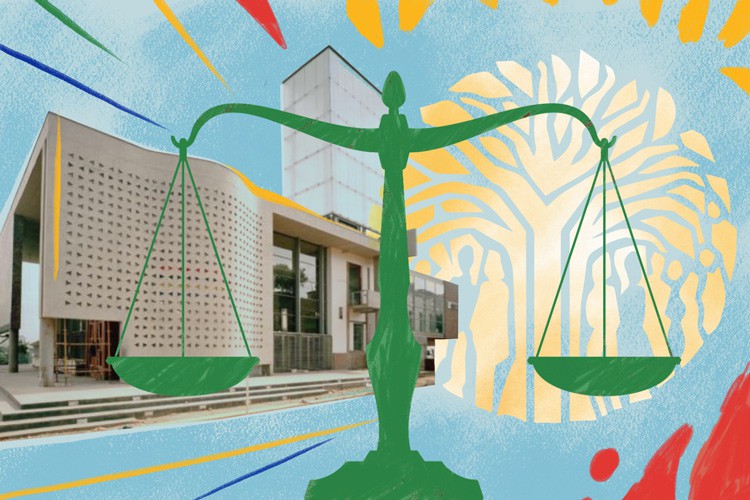
21 June 2021
Illustration: Lisa Nelson
Litigants who defame judges, launching scurrilous and unfounded attacks on their integrity to further their own ends, must expect to pay punitive costs, the Constitutional Court has ruled.
The matter before the court was an attempt to appeal a ruling in the Mpumalanga High Court involving the warring Mawewe tribal community.
In March last year, Evah Mkhatshwa, the mother of the government recognised chieftain Khulile Mkhatshwa, and the tribal authority went to court, securing an “Anton Piller” order to seize and preserve documentation in the hands of the Mawewe Communal Property Association, which administers vast tracts of agricultural land restored to the community in 2010.
Anton Piller orders are similar to private search warrants. They permit the search of documents to preserve important evidence for litigation and are always brought without notice to the other side and usually held in camera to maintain confidentiality until the order has been acted on.
Evah Mkhatshwa, in her application, made allegations of corruption, theft and fraud and accused the association of failing to register and restore certain farms to the tribe.
The matter was allocated to Acting Judge Henk Roelofse who, on the direction of the Judge President Francis Legodi, heard the matter “in camera” (a proceeding with restricted access).
But the association took umbrage with it being “in camera” and its chairperson Siphiwe Mkhatshwa, in a flurry of court action in which he failed to secure leave to appeal against the order, accused both judges of acting improperly.
In a unanimous decision, the Constitutional Court has also ruled that there are no prospects of success on appeal.
But in a judgment penned by Judge Sisi Khamepe, the court hit back at the association and its lawyers - including senior counsel - for persisting with the repeated “troubling” allegations of serious and grave misconduct against the judges, “callously defaming them”.
The association accused the Judge President of exercising undue and improper influence over Roelofse, who consequently failed to act impartially.
“They make these submissions not as a mere passing remark, but as a basis for their appeal,” Judge Khampepe said.
And, Judge Khampepe said, this continued after the Judge President wrote to their attorneys “clearly and unequivocally addressing and disposing of all the accusations” and inviting them to retract them.
Even after the Constitutional Court called for written submissions in relation to the issue of costs, the association stuck to its guns, saying their argument was cogent.
“They chose to sail a sinking ship into deeper litigious waters, relying on unsubstantiated and scandalous accusations as a rudder,” Judge Khampepe said.
“For good reason, it is common practice to grant Anton Piller orders in camera.
“They are either being willfully ignorant of this practice or they are attempting to turn a sow’s ear into a silk purse.”
She said while courts and judicial officers were by no means immune from public criticism and accountability, it was not open to litigants to level unfounded and scurrilous attacks against them to further their own needs.
“And litigants who resort to these kinds of tactics must be aware that they are unlikely to enjoy this court’s sympathies or be shown mercy in relation to costs.
“They were not desperate, self-represented litigants. They had an impressive legal team, including experienced senior counsel. They ought to have known better,” she said, ordering the association to pay costs on a punitive, attorney and client, scale.